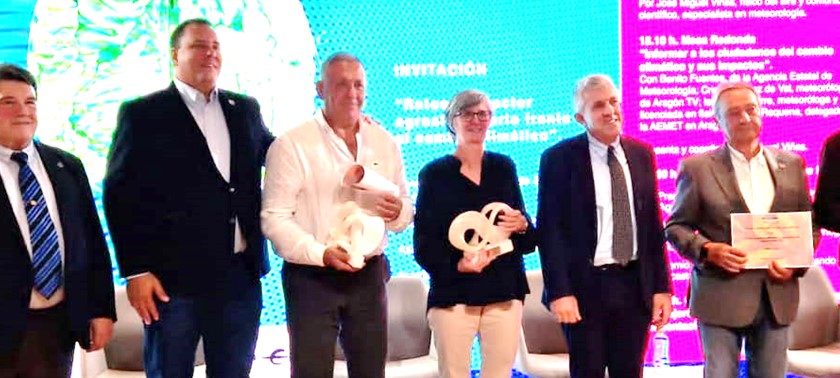On October 24, the Aragonese Agri-Food Alliance celebrated its annual “verde que te quiero verde” event. The programme included the ceremony of its annual awards. Auxi Casterad received the 2023 award for Agri-Food research and innovation on behalf of the Mapping, GIS and Remote Sensing Laboratory of CITA. The event took place at the Ibercaja Explora Space in Zaragoza, and was attended by Ángel Samper, Counselor of Agriculture, Livestock and Food of the Government of Aragon.
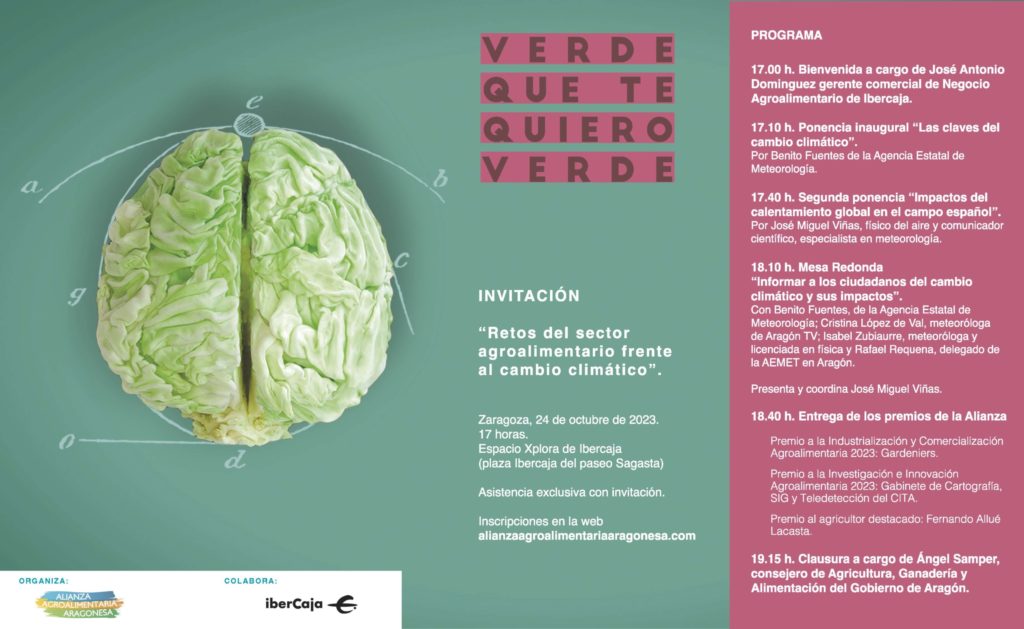
The Aragonese Agri-Food Alliance is a cooperation initiative focusing on developing a communication strategy with the purpose of raising awareness on the importance of Agri-Food and the rural environment. Improving the visibility and reputation of food manufacturers and agricultural producers is a key challenge. The alliance sets out to communicate to society at large that food production in sufficient quantity and quality, and at reasonable prices, represents a complex task. The sector must remain united to effectively convey these messages.
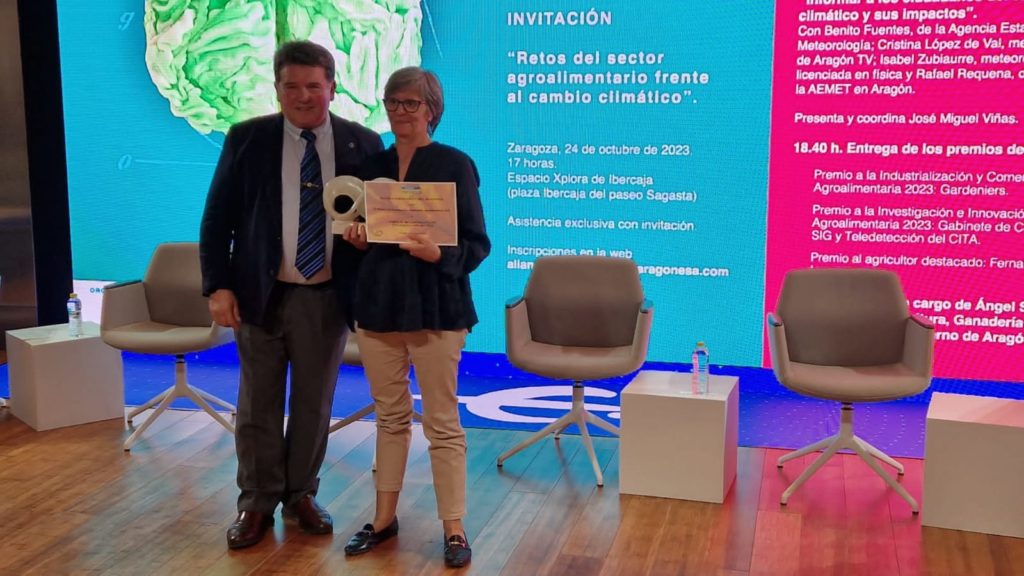
The Agri-Food research and innovation award is annually presented to a person or entity whose research has been so effective that it has been translated into new processes or products, with improvements notably superior to the existing ones and that, in addition, represent a relevant contribution to the progress of the agri-food sector. The professional careers of people or entities that have contributed with their work to the development of the agri-food sector and the rural environment are also recognized.
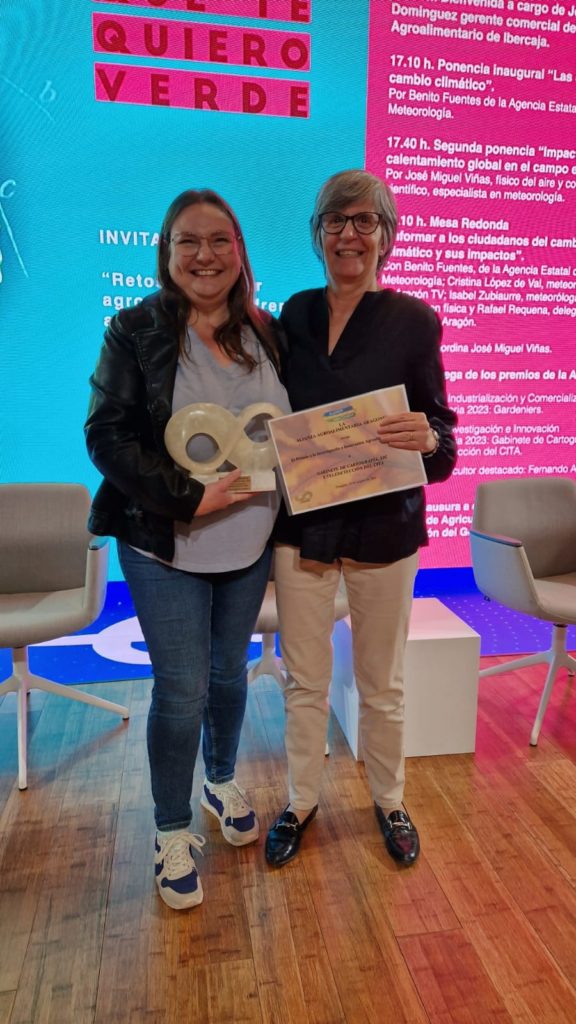
The CITA research lines aim at satisfying social demands in relation to the methods of use, production, conservation, transformation and distribution of agri-food products, as well as promoting quality, safety and healthy. CITA uses an integrated approach, through competitive production compatible with rural development and respect for the environment.
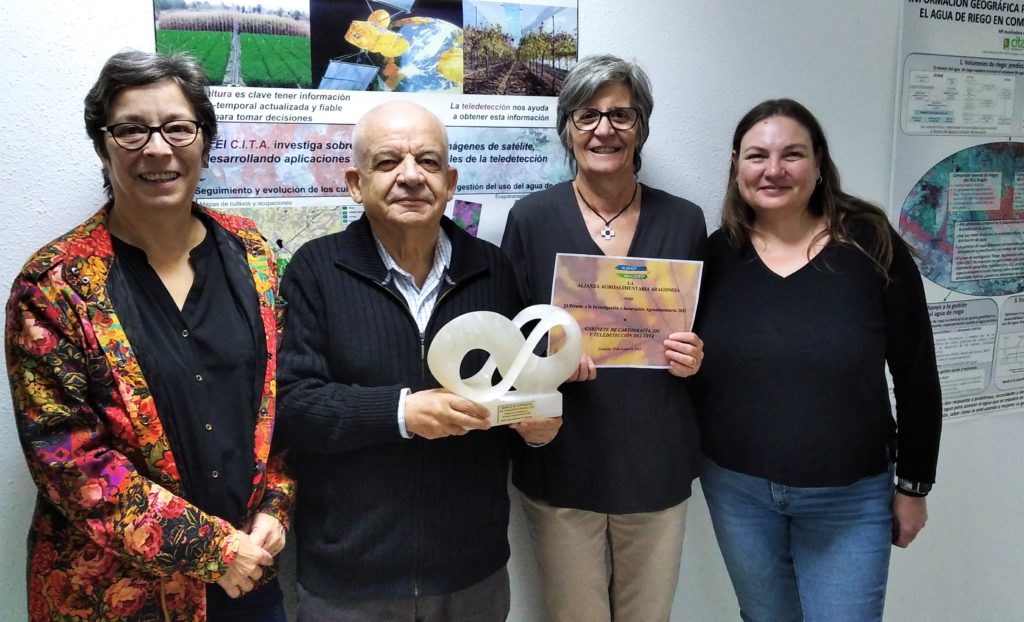
The Cartography, GIS and Remote Sensing Laboratory aims to support agricultural decision-making through geographic information systems and remote sensing. With these territorial information technologies, it develops agricultural and environmental applications in the field of crops, soil and irrigation. Its main activities are the development of models and methodologies for monitoring crops at different scales, the monitoring and analysis of the evolution of irrigation and the contribution to the digitalization of agriculture.

